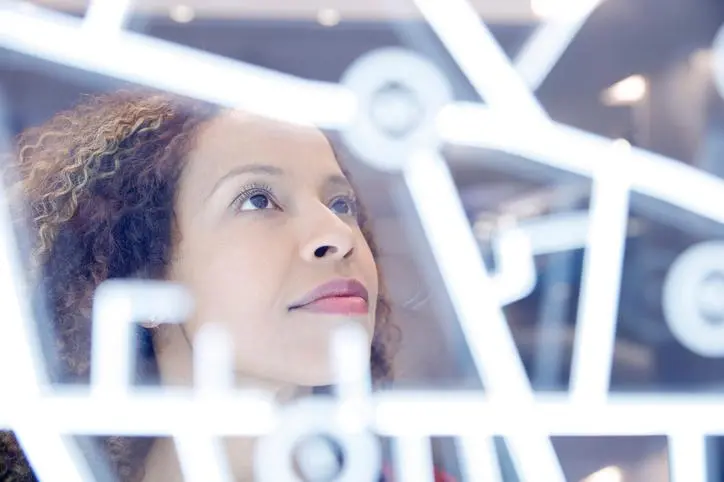PHOTO
I bought my first robot from a Boston-based gadget shop back in 1986, right after completing my studies at Harvard and ready to head back to Saudi Arabia. After landing at an airport in Jeddah and going through customs, it was such a struggle trying to explain to officials why I was bringing a meter-high robot.
I had to declare that it was a toy for my younger brother Hattan. For years, among my family and friends, that robot was the most talked about, entertaining, exciting and heavily used piece of furniture at my Jeddah residence.
Now, using technology is becoming an important part of our daily lives. Artificial intelligence (AI) became a pillar of the Vision 2030 reform plan when the official announcement was made about the creation of NEOM at the Future Investment Initiative summit a few years back. It is anticipated that NEOM will be a high-tech, renewable-energy city with more robots on the ground, including self-driven cars, than humans.
Recently, Saudi Arabia announced its National Strategy for Data and AI at the Global AI Summit, hosted in Riyadh with virtual links to a global audience. The strategy was announced by Saudi Data and AI Authority President Dr. Abdullah bin Sharaf Al-Ghamdi, who spoke on behalf of Crown Prince Mohammed bin Salman.
The new strategy will focus on bridging the skills gap, stimulating the market through research and innovation and utilizing applications of AI for government and private-sector agencies.
As Saudi Arabia leads the G20 this year with the economic impact of the coronavirus disease (COVID-19) at the top of its agenda, AI is an imperative component for G20 economies’ future plans. With decision-makers in both public and private sectors involved in fighting the pandemic, using technology in health care, especially in the field of biopharma research and development, will be critical for dealing with the pandemic successfully in the long term.
On the other hand, it is worth noting that the speed and scale of the transformations likely to result from AI and associated technologies may create both opportunities and social challenges. Saudi Arabia could harness these technologies to improve public sector efficiency. Also, savvy investments will boost its sovereign wealth assets and income in the long term. However, there are risks that these technologies may lead to high levels of structural unemployment among citizens.
In my opinion, as the Kingdom is planning to be one of the top AI global pioneers by 2030, one thing to agree about is that technology in general, and AI in particular, will be at the center of the future normal.
AI will eventually make our lives easier, more intelligent, efficient and safer in terms of health care, mobility, traveling, documentation and other daily activities. But to what degree it will impact human capital employment remains to be seen.
I do not know when I will be buying my next robot. I am sure the new one will be far more user-friendly and intelligent than the first one I bought. The only question is: Will it replace the support staff at my residence?
Basil M.K. Al-Ghalayini is the chairman and CEO of BMG Financial Group.
Copyright: Arab News © 2020 All rights reserved. Provided by SyndiGate Media Inc. (Syndigate.info).





















